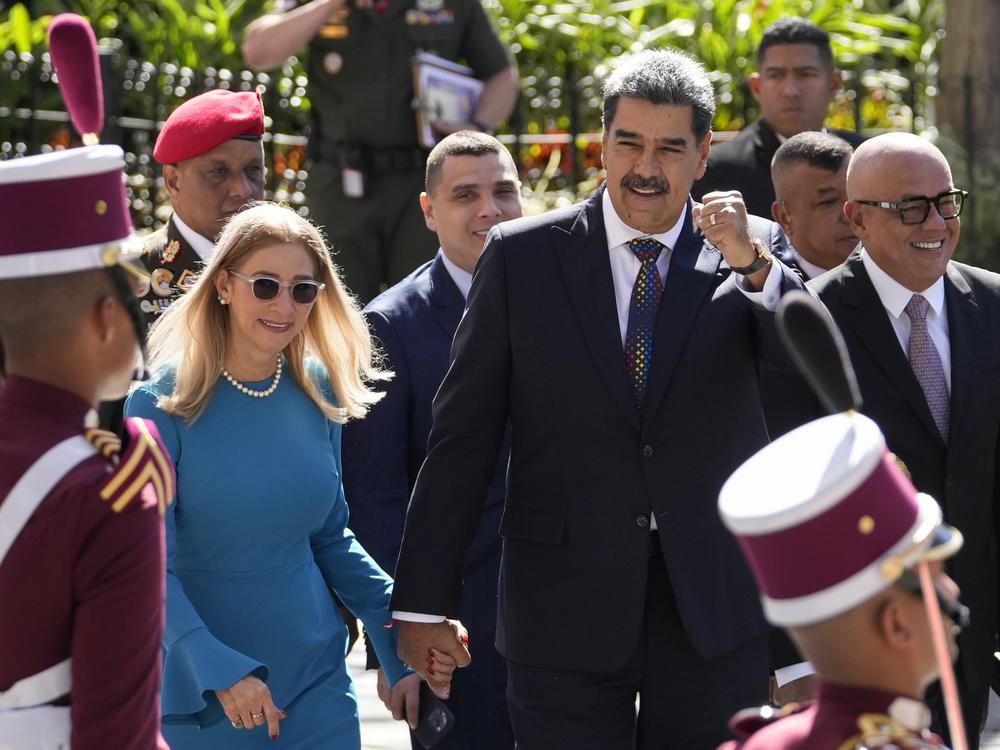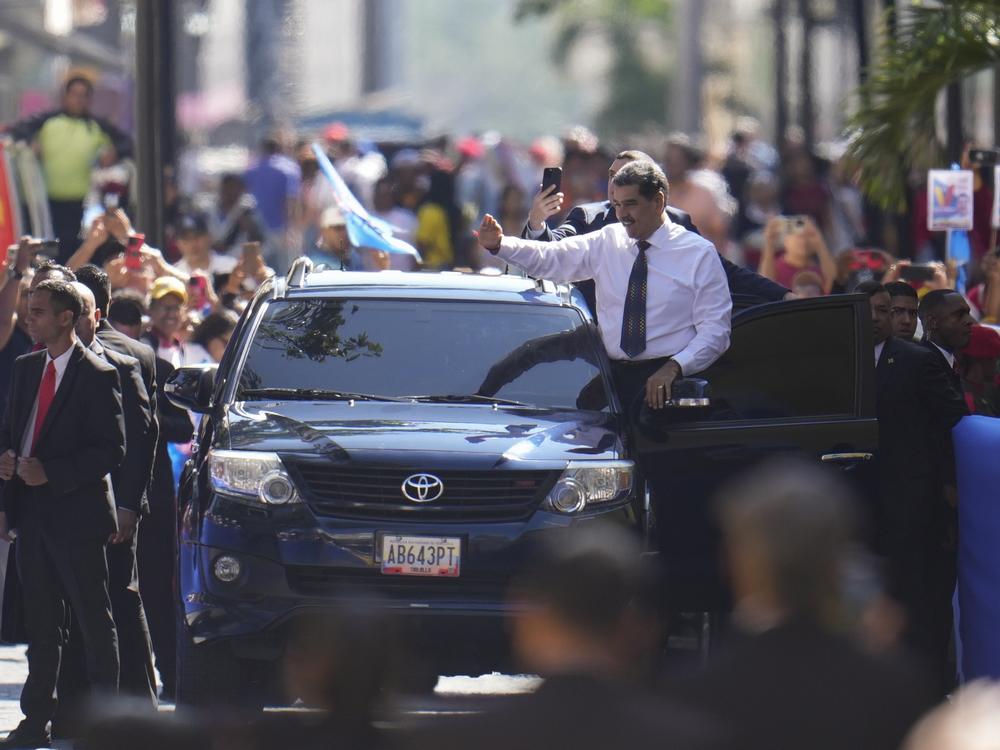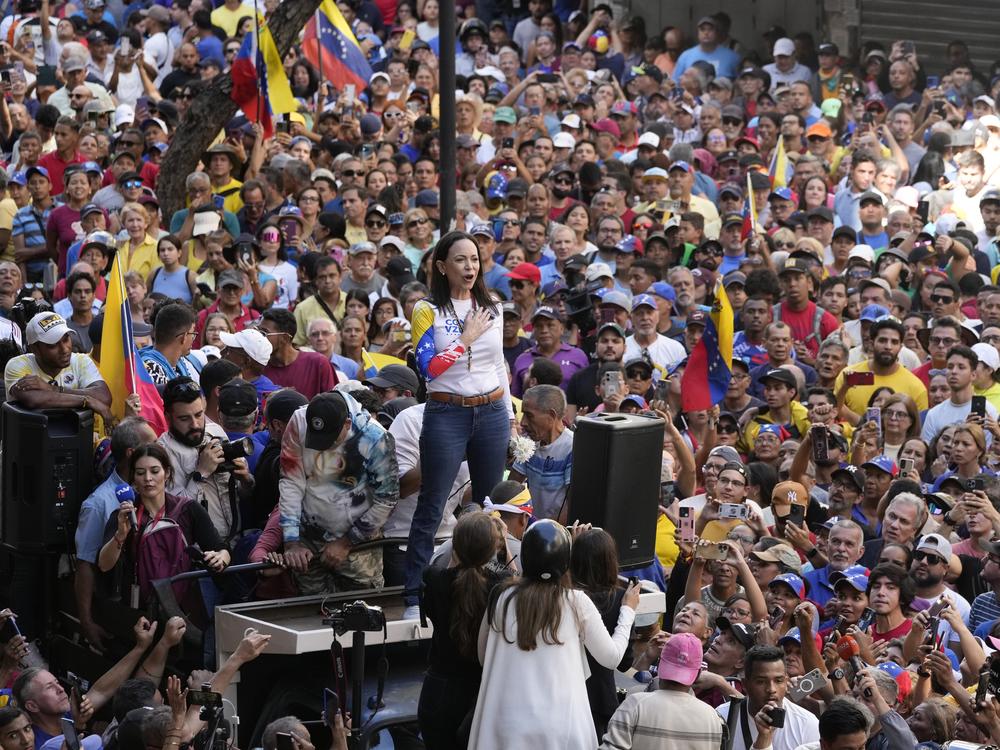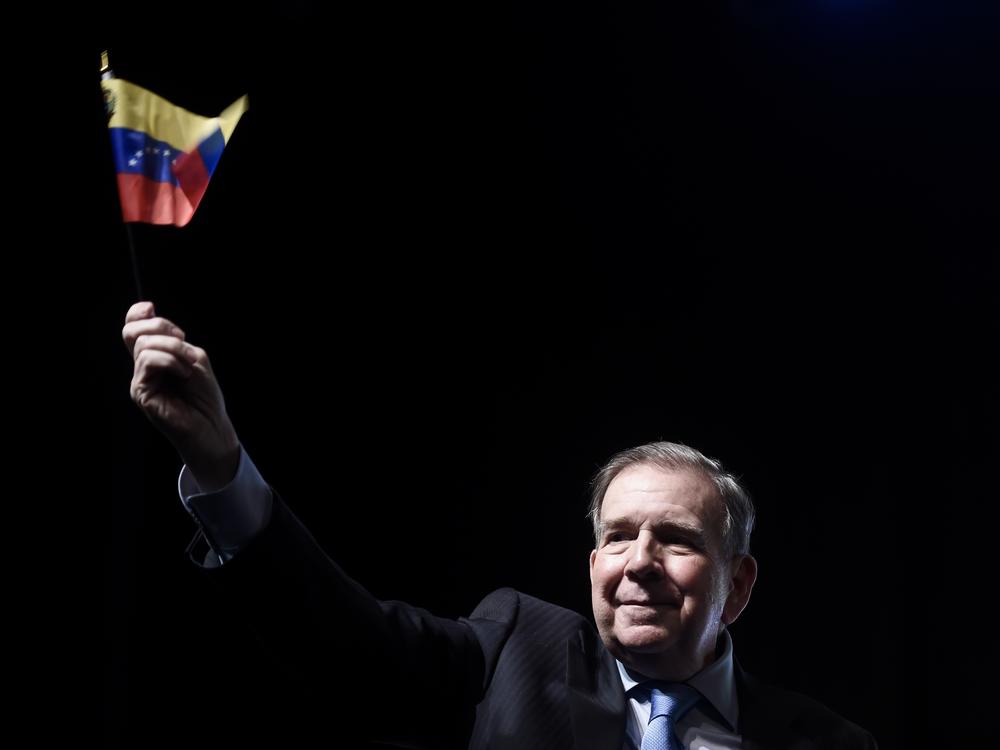Section Branding
Header Content
Venezuela's Maduro begins new term as US raises arrest bounty
Primary Content
BOGOTA, Colombia—Venezuelan President Nicolás Maduro was sworn into office for a third consecutive term on Friday, as the United States, European Union and United Kingdom announced a new round of sanctions on the increasingly authoritarian government.
The US, EU and many neighboring countries have recognised the opposition candidate – Edmundo González– as president-elect and accused Maduro of fraud.
The Venezuelan president's swearing in ceremony follows last year's controversial election in July that sparked large scale protests in which thousands of people were arrested.
Even as he takes office for another six- year term, he finds himself increasingly isolated on the international stage.
On Friday, not only did the Biden administration issue new financial sanctions on eight officials from Maduro's government, they also increased a reward for information leading to Maduro's capture and arrest from $15 million, to $25million.
Maduro was charged with narco-terrorism in 2020 by U.S. prosecutors who accused him of backing a terrorist group in Colombia and facilitating cocaine shipments to the United States. Maduro denies the charges, which he has described as part of an effort to violently remove him from office.
At his inauguration Maduro struck a defiant tone as he celebrated in a red carpeted room, surrounded by loyalists and dignitaries from China, Russia and other nations that have been friendly towards his government. The Cuban and Nicaraguan presidents were the only Latin American leaders present at the inauguration.
"The Venezuelan people have defeated imperialism, and its sly diplomacy," Maduro said.
Maduro promised that his new term in office would be a "period of peace." But in recent months it has been anything but that. On Thursday thousands of Venezuelans took to the streets once again to protest Maduro's election.
Many of the protests around the country were quickly dispersed by security forces that continue to remain loyal to Maduro's government.
Still, some analysts perceive Thursday's protests as a sign that Venezuela's opposition still has a shot at steering the country towards democratic rule.
"The story today should not be about Maduro being sworn in (by force) , everyone expected that," said Tamara Taraciuk Broner a human rights lawyer and Venezuela expert at the Inter American Dialogue.
"Rather it's a story of how thousands of Venezuelans took to the streets despite the fear of repression and how that can be used as a catalyst for a democratic transition."
Thursday's protests in the capital Caracas were led by Maria Corina Machado, the Venezuelan opposition leader who was barred from participating in the July elections.
Machado had been in hiding since August due to threats by the government to arrest her.
In a brief speech, Machado assured her followers that the Venezuelan government was "digging its own grave."
After she left the rally the opposition reported that Machado had been briefly detained by members of Venezuela's police, who stopped her convoy and dragged her from her motorcycle.
Machado said she was released about an hour later, and forced to record a video in which she said she had not been harmed.
"What happens to me shows there are profound divisions within the regime," Machado said. "Maduro may have worn a presidential band today, but it's more like a chain around his ankle."
Venezuela's powerful Interior Minister Diosdado Cabello denied that he had ordered Machado's arrest and accused her of faking her own arrest, in order to agitate her followers.
A United Nations report published on Thursday said that at least 16 political activists and human rights leaders had been arrested in the days leading up to Maduro's swearing in ceremony.
Those detained recently include the director of a freedom of speech group, and the son in law of Edmundo González, the retired diplomat who became the opposition's stand-in candidate in July's election, and is now in exile.
González had pledged to return to Venezuela, but has not said how or when. The government has threatened him with arrest and put a $100,000 bounty on his head.
Phil Gunson, a Venezuela analyst at the International Crisis Group said that a transition to democracy in Venezuela, depends largely on the military, the traditional powerbroker in that nation's politics.
The military's top brass has long sided with Maduro and backed his claim that he won the July election with 51% of the vote.
But Maduro has not provided any evidence to back that claim, while the opposition has gathered tally sheets from thousands of voting tables around Venezuela that indicate its candidate González, won the election with two thirds of the vote.
Gunson said it is critical for the opposition to build bridges with the military. And offer them incentives to support a transitional government.
"The people in the military have been compromised in human rights abuses" Gunson said. "And they aren't likely to ditch Maduro, unless it's clear that there's a path out of this situation which allows them to stay out of jail and maintain at least a part of the wealth that they've accumulated."
Nearly eight million people have left Venezuela over the past decade, according to the United Nations. Most head to neighbouring countires like Colombia, but many thousands of them head to the U.S. each year by making the long overland trek that includes crossing Mexico and the treacherous Darien jungle.
Many of those in exile have also been taking part in protests against Maduro's new term.
Alfredo Gomez, a petroleum engineer who joined a rally in Bogota, Colombia, said that change will not just happen "with people on the streets."
"We need the military, especially those in the mid and lower levels to be with the Venezuelans" he said. "Once the corrupt government of Maduro knows they don't have the power to suppress the people in Venezuela, they will run like rats to Cuba, to Moscow, wherever."





